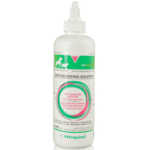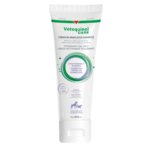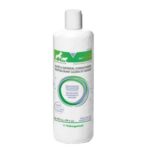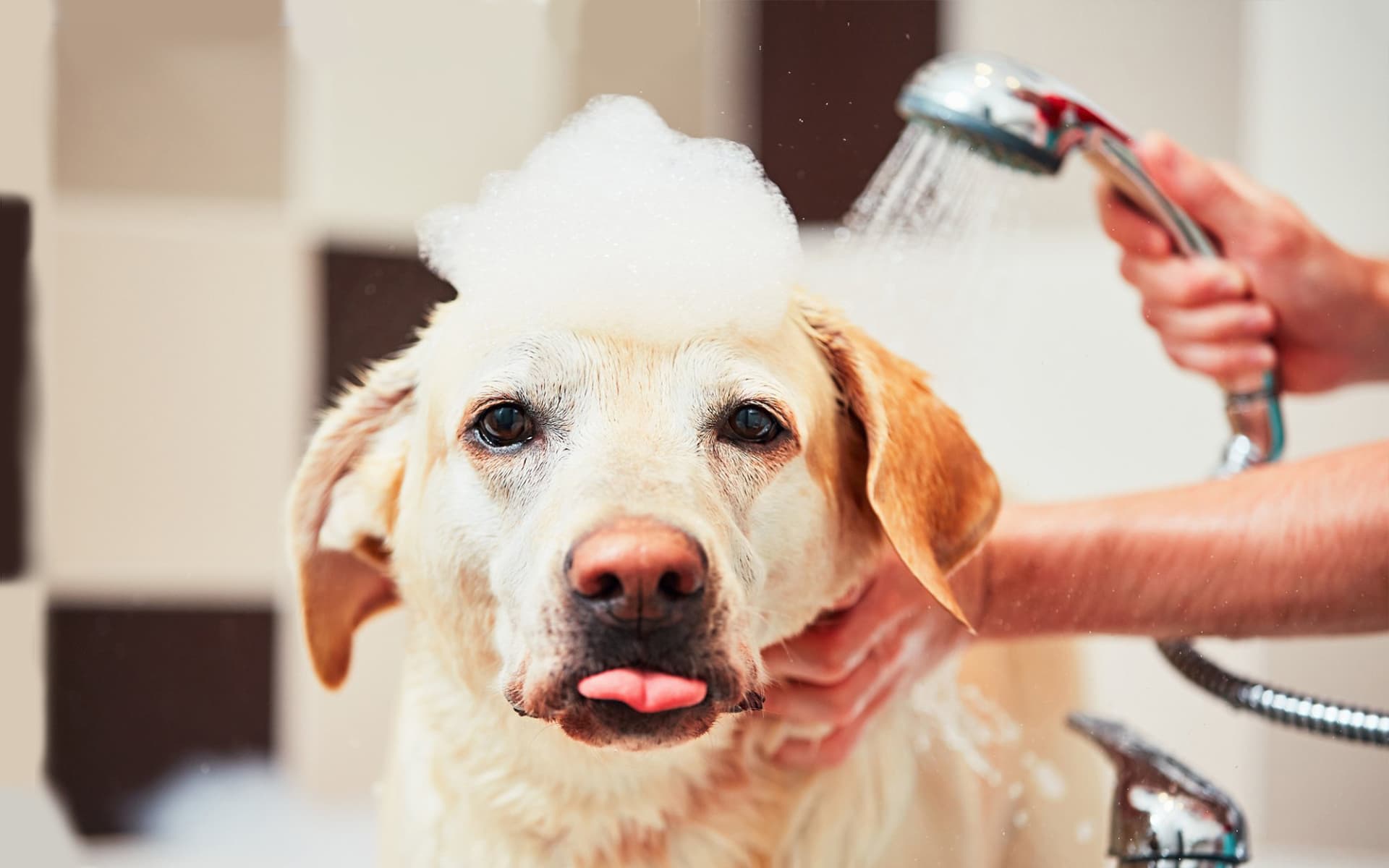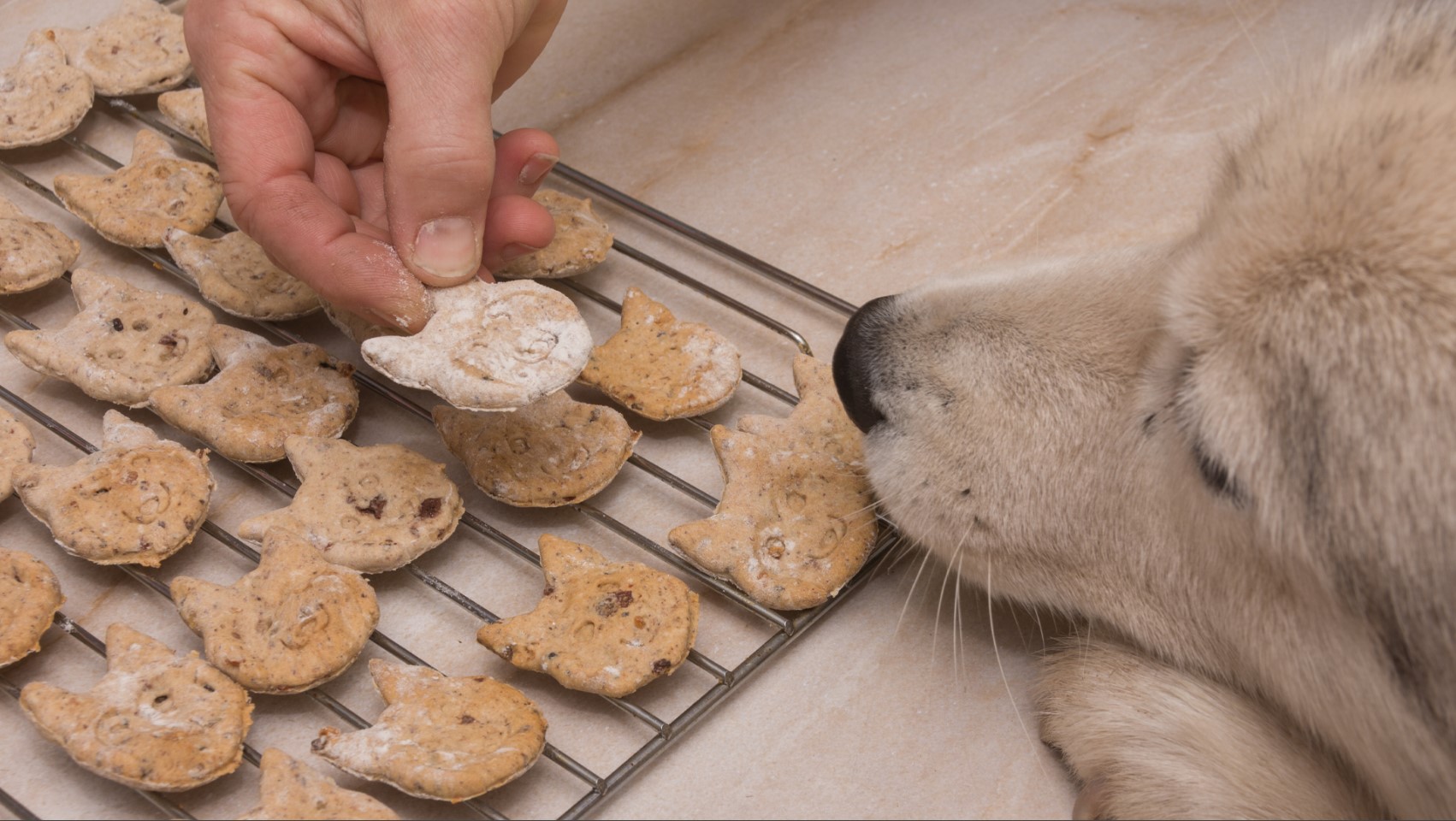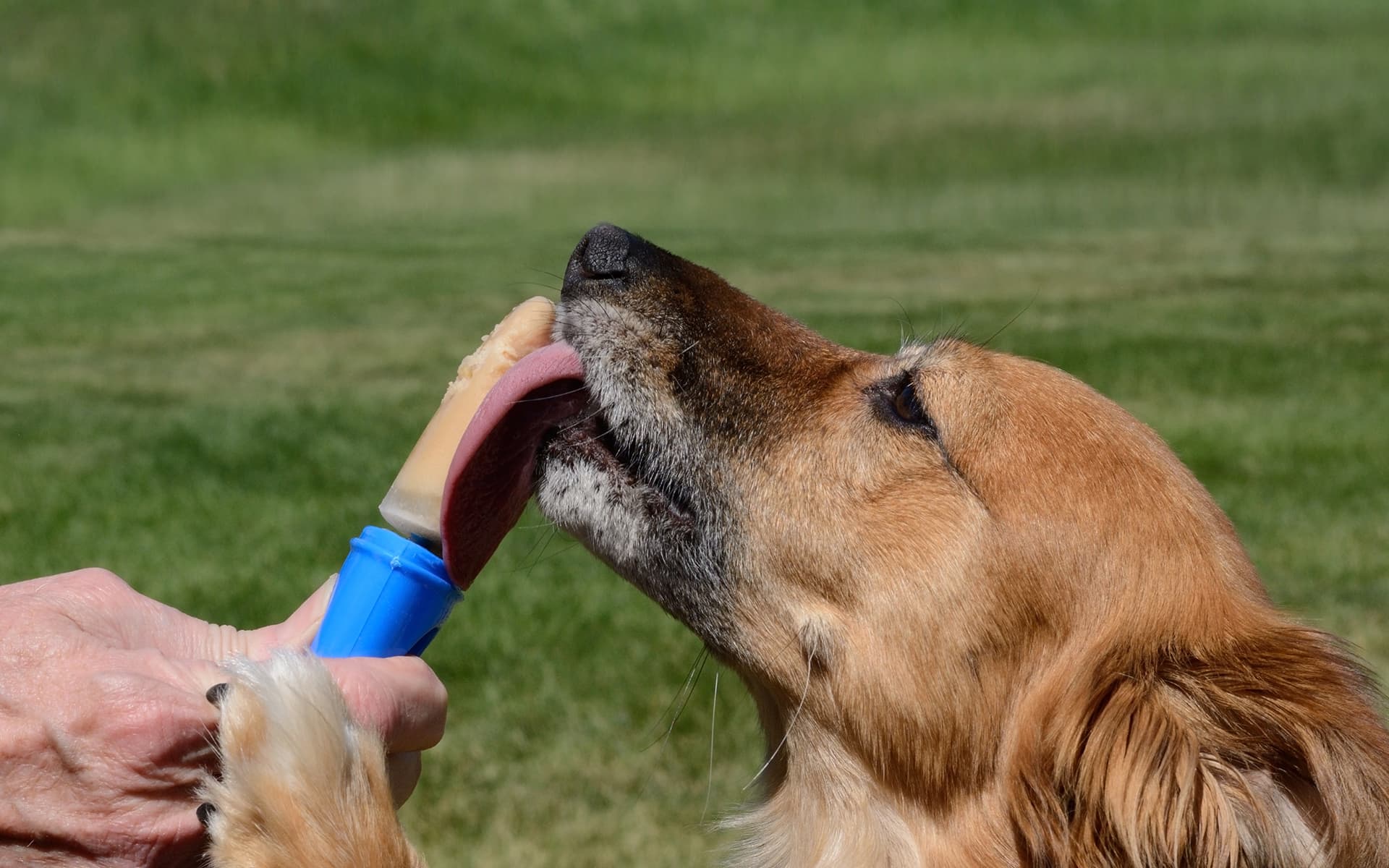1 – Feed your dog a nutritious and well-rounded diet.
Balanced nutrition for your dog is the cornerstone of healthy skin and a shiny coat. Packaged pet food sold in stores is required to provide all the vitamins, minerals, protein and other nutrients your pet needs for their life stage. Read the nutrition label to determine the recommended amount of food to be served daily based on your pet’s ideal weight, or ask your veterinary clinic.
If you’re preparing your dog’s food using fresh or raw ingredients, you’ll need to include the right mix of meat, bones, grain, fruit and vegetables to achieve a balanced homemade diet. Nutrient deficiency could affect your dog’s skin and coat and cause other health problems. Ask your veterinarian for advice and resources on creating a custom menu for your pet.
2 – Brush your dog.
Daily brushing improves the appearance of your dog’s fur by removing loose hair, dirt and dandruff, improving blood circulation and spreading their skin’s natural oils. This all helps keep your pet’s coat shiny and healthy. Untangling matted hair also improves air circulation and helps prevent allergens such as pollen and dust from remaining trapped. In addition to spending quality time with your pet, having a daily brushing routine also allows you to notice anything unusual sooner, such as a patch of irritated skin, injury or mysterious lump.
3 – Soothe your dog’s dry skin.
Cold weather and seasonal allergies may dry your pet’s skin, causing it to become itchy and flaky. Use a humidifier to help offset the drying effect of electric heating inside your home. Bathing your pet using a specially formulated shampoo can wash away allergens from their fur and provide temporary relief from seasonal allergies. If the problem persists, ask your veterinarian if a prescription medication could provide more long-lasting results.
4 – Monitor your dog’s itchy spots.
If your dog is constantly scratching, licking or chewing the same area, this could make things worse. Such behaviour starts a vicious cycle of causing further damage to the skin while simultaneously preventing natural healing. Don’t delay and schedule an appointment with your veterinarian. They may recommend shaving the affected area to improve airflow, prescribe medication to treat any inflammation or infection or have your pet wear a cone to prevent excessive licking and gnawing.
5 – Consider omega-3 fatty acids as a dietary supplement.
Omega-3 essential fatty acids can have numerous health benefits for dogs, including helping maintain their skin and coat in excellent condition. If your pet’s fur seems dry or dull despite all the recommendations above, ask your veterinarian if a daily dietary supplement like AllerG-3 [JM1] could be beneficial.
[JM1]URL has changed to https://www.vetoquinol.ca/en/products/allerg-3


